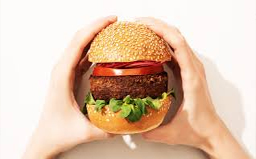Introduction
Alcohol has long been associated with socializing, relaxation, and sometimes even romantic encounters. Many people enjoy a drink or two to lower their inhibitions and enhance their enjoyment of intimate moments. However, what often goes unnoticed is the complex relationship between alcohol consumption and sexual performance, particularly orgasms. This article delves into the ways alcohol may be adversely affecting your sexual experience, focusing on how it can diminish the quality and frequency of orgasms.

The Science of Alcohol and Sexual Function
Understanding Alcohol’s Effects
Alcohol is a depressant that affects the central nervous system. When consumed, it alters neurotransmitter levels, particularly gamma-aminobutyric acid (GABA) and glutamate. These changes can lead to feelings of relaxation and lowered inhibition, but they also impact physical and cognitive functions essential for sexual arousal and orgasm.
- Impact on Blood Flow: Alcohol can lead to vasodilation, which initially seems beneficial for arousal. However, excessive consumption may impair blood flow to the genital area, leading to difficulties in achieving and maintaining an erection in men and reduced lubrication and sensitivity in women.
- Hormonal Changes: Chronic alcohol consumption can disrupt the endocrine system, leading to hormonal imbalances. For men, this may result in lower testosterone levels, which can decrease libido and sexual performance. For women, hormonal fluctuations can affect menstrual cycles and sexual desire.
- Nervous System Impairment: Alcohol affects the nervous system, leading to decreased sensation and delayed response times. This can hinder the ability to reach orgasm, as sexual climax requires a delicate balance of physical and emotional factors.
Psychological Effects of Alcohol
Beyond its physical effects, alcohol also impacts psychological factors crucial for sexual enjoyment.
- Anxiety Reduction vs. Performance Anxiety: While moderate drinking may help reduce social anxiety, it can lead to increased performance anxiety in some individuals. Worrying about sexual performance can inhibit relaxation and enjoyment, further complicating the ability to achieve orgasm.
- Altered Perception: Alcohol can change your perception of sexual encounters. While it might enhance the experience in the short term, it may also lead to regrettable decisions, miscommunication, and dissatisfaction, all of which can dampen sexual pleasure and orgasmic potential.
- Mood Disorders: Chronic alcohol use is linked to mood disorders such as depression and anxiety, which can significantly affect sexual desire and performance. A negative emotional state can diminish sexual responsiveness and the ability to reach orgasm.
Alcohol and Gender Differences in Sexual Function
Effects on Men
- Erectile Dysfunction: Studies have shown that excessive alcohol consumption is a leading cause of erectile dysfunction. The ability to achieve and maintain an erection is critical for sexual activity, and impairment in this area can prevent orgasms.
- Delayed Ejaculation: While some men may believe alcohol can help them last longer in bed, it can paradoxically lead to delayed ejaculation or anorgasmia, where men struggle to climax even after adequate stimulation.
- Impact on Libido: Long-term alcohol use can decrease libido, resulting in reduced interest in sexual activities and, consequently, fewer opportunities for orgasms.
Effects on Women
- Decreased Arousal: Women may experience diminished arousal and lubrication due to alcohol’s dehydrating effects. This can lead to discomfort during sex and hinder the ability to achieve orgasm.
- Inhibited Orgasm: Women often report difficulties in reaching orgasm when intoxicated. The lack of sensitivity and heightened inhibition can create barriers to sexual climax.
- Hormonal Fluctuations: Alcohol consumption can affect menstrual cycles and hormonal levels in women, leading to fluctuations in libido and overall sexual function.
Social and Cultural Influences
The Role of Alcohol in Dating and Relationships
Alcohol is often used as a social lubricant, particularly in dating scenarios. However, the reliance on alcohol to enhance sexual encounters can create an unhealthy dynamic in relationships.
- Creating Expectations: The perception that alcohol enhances sexual experience can lead to unrealistic expectations. When partners expect alcohol to facilitate intimacy, they may overlook emotional connection and communication, which are vital for a fulfilling sexual experience.
- Dependence on Alcohol: Some individuals may develop a dependence on alcohol to engage in sexual activities. This can lead to a cycle of reliance that ultimately detracts from genuine intimacy and connection, further complicating sexual experiences.
- Altered Communication: Alcohol can impair communication, leading to misunderstandings or misinterpretations of consent and desire. Clear communication is essential for a satisfying sexual experience and achieving orgasm.
Cultural Norms Surrounding Alcohol and Sex
In many cultures, alcohol is intertwined with sexual expression, often seen as a prerequisite for fun and enjoyment. This can perpetuate the idea that one must drink to have good sex, further reinforcing unhealthy relationships with alcohol.
- Peer Pressure: Societal expectations can pressure individuals to drink to fit in or enhance their sexual experiences. This can lead to overconsumption and its associated risks, including negative impacts on sexual health and satisfaction.
- Stigmatization of Sobriety: In some social circles, choosing to abstain from alcohol may be stigmatized, creating an environment where individuals feel compelled to drink, even if it negatively affects their sexual experiences.
The Short-Term vs. Long-Term Effects of Alcohol on Sexual Health
Short-Term Effects
In the short term, moderate alcohol consumption may lower inhibitions and enhance feelings of pleasure, potentially making sex more enjoyable for some. However, this can be a double-edged sword.
- Increased Risk-Taking: Alcohol can lead to increased risk-taking behaviors, which might result in casual or unsafe sexual encounters. This not only poses risks for sexually transmitted infections (STIs) but can also lead to emotional consequences that affect sexual health and satisfaction.
- Impaired Judgment: Intoxication can impair judgment, leading to poor decisions regarding sexual partners or practices, which can result in regret and dissatisfaction.
Long-Term Effects
Over time, excessive alcohol consumption can lead to more significant sexual health issues.
- Chronic Erectile Dysfunction: Long-term alcohol abuse can lead to persistent erectile dysfunction, significantly affecting sexual relationships and overall well-being.
- Hormonal Disruptions: Chronic use can lead to long-term hormonal disruptions, impacting libido and sexual function across genders.
- Psychological Effects: Long-term alcohol use is linked to increased risks of depression and anxiety, which can have lasting effects on sexual desire and performance.
Healthy Alternatives to Alcohol for Enhancing Sexual Experience
If you find that alcohol negatively affects your sexual experience, there are several healthier alternatives to consider.
Mindfulness and Relaxation Techniques
Practicing mindfulness and relaxation techniques can help reduce anxiety and enhance sexual enjoyment.
- Meditation: Engaging in mindfulness meditation can help you become more in tune with your body and emotions, enhancing the overall sexual experience.
- Breathing Exercises: Deep breathing can promote relaxation, increase body awareness, and reduce performance anxiety, making it easier to achieve orgasm.
Natural Aphrodisiacs
Certain foods and supplements are thought to enhance libido and sexual performance without the negative effects of alcohol.
- Dark Chocolate: Contains compounds that can increase serotonin levels, promoting feelings of pleasure and enhancing mood.
- Maca Root: A natural supplement known for its potential to boost libido and energy levels.
- Ginseng: Often used in traditional medicine, ginseng may improve sexual function and desire.
Open Communication with Partners
Creating an open dialogue with your partner about sexual desires, preferences, and concerns can significantly enhance intimacy and satisfaction.
- Discussing Boundaries: Talking about boundaries and desires can create a safe space for exploration, leading to a more fulfilling sexual experience.
- Sharing Experiences: Sharing personal experiences and preferences can foster deeper emotional connections, which are crucial for achieving orgasm.
Conclusion
While alcohol may seem like a harmless addition to social and sexual encounters, it can have profound effects on sexual performance and the ability to achieve orgasm. Understanding the physiological and psychological implications of alcohol can empower individuals to make informed choices about their sexual health. By exploring healthier alternatives and fostering open communication, you can enhance your sexual experiences without relying on alcohol. Remember, a satisfying sexual life is rooted in emotional connection, mutual respect, and healthy choices.


